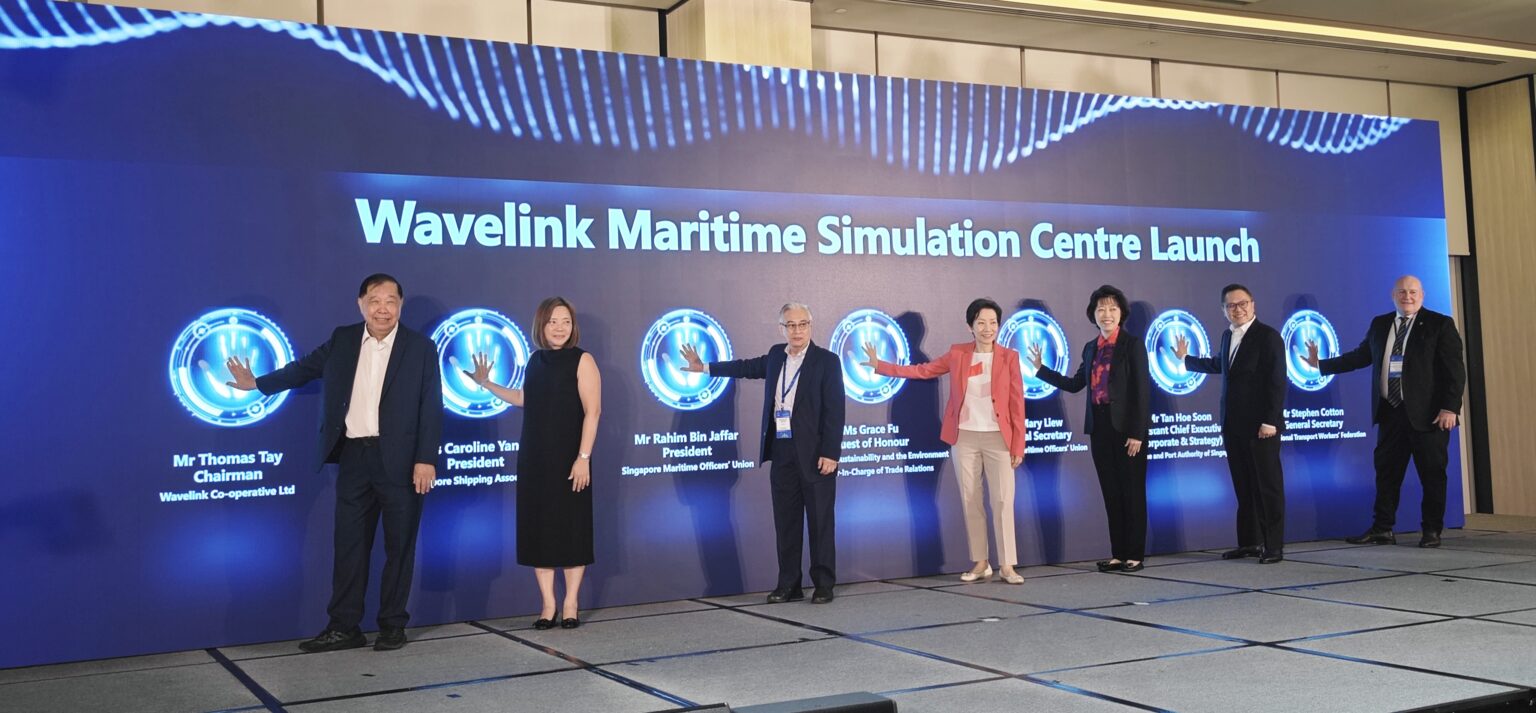Record bunker sales continue
But Singapore's sights are firmly set on decarbonisation

Last year bunker sales in Singapore past the 51 million tonnes mark and this year could see even higher volumes. The Maritime and Port Authority of Singapore (MPA) has reported first half 2024 bunker sales at 27.2 million tonnes, up 85% year-on-year.
The Singapore establishment is very much looking to a zero carbon future, but conventional fuel supply is going to be at the at heart of the global shipping hub’s bunker business.
However, change is coming there too. The MPA is strongly encouraging the digitalisation of bunkering. Specifically, the move to electronic bunker delivery notes (eBDN) is gathering pace.
MPA announced the launch of its digital bunkering initiative in November 2023 it is planning to make eBDN mandatory to enhance collaboration between bunker buyers and suppliers, enable better reporting of emissions and achieve time and cost savings.
Recently technology company ZeroNorth has started providing its eBDN solution on 12 barges operated by Vitol Bunkers in Singapore for supply to its shipping customers.
It is expected that the deployment of eBDN will help Vitol Bunkers streamline workflows, eliminate the risk of manual errors, enhance efficiencies and reduce costs.
After comprehensive testing to validate its regulatory compliance functionality, data accuracy and security, the MPA granted ZeroNorth’s eBDN solution whitelisting approval. ZeroNorth currently serves 56 barges and 10 customers in Singapore.
Ng Yi Han, Director (Innovation, Technology & Talent Development), at the Maritime and Port Authority of Singapore (MPA), said: “Digital bunkering can boost the efficiency and transparency of the bunkering process in Singapore. Since the launch of the digital bunkering initiative last November, the MPA is encouraged to see more licensed bunker suppliers, ship owners, and operators, including Vitol Bunkers, adopting digital bunkering solutions. Using the whitelisted solutions, including ZeroNorth’s solution, to complete and issue digital bunkering documents can help save many man-days per year, which companies can redirect to other value-added work.”
Meanwhile Singapore is backing the development of a range of alternative fuels
In May X-Press Feeders, Global Energy Trading (GET), and PSA Singapore (PSA) successfully completed the first simultaneous methanol bunkering and cargo operation (SIMOPS) in Singapore.
It took place at the new Tuas Port with the support of the MPA, together with various government agencies and local research institutions. The use of the mass flow metering (MFM) system for methanol, together with the use of digital bunkering, was also trialled.
The ISCC-certified bio-methanol used for the SIMOPS was produced by green methanol producer OCI Global and supplied via GET, an ISCC-certified supplier.
In another initiative the country’s Energy Market Authority (EMA) and the MPA have shortlisted two consortia that will proceed to the next round of evaluations of proposals to provide a low- or zero-carbon ammonia solution on Jurong Island for power generation and bunkering.
The two consortium leads are Keppel’s Infrastructure Division and Sembcorp-SLNG, and the bunkering players in these consortia are Itochu Corporation, Nippon Yusen Kabushiki Kaisha (NYK Line) and Sumitomo Corporation. The two consortia will proceed to conduct engineering, safety and emergency response studies for the proposed project.
Once these studies have been completed EMA and MPA will select one of the two bidders as the lead developer of the project, it is hoped this will happen early next year.
The lead developer will develop the end-to-end ammonia solution comprising generating 55 to 65 MW of electricity from imported low- or zero-carbon ammonia via direct combustion in a Combined Cycle Gas Turbine and facilitating ammonia bunkering at a capacity of at least 0.1 million tonnes a year starting with shore-to-ship bunkering followed by ship-to-ship bunkering.
In a statement the MPA explains: “The project is part of Singapore’s National Hydrogen Strategy launched in 2022, which outlines Singapore’s approach to develop low-carbon hydrogen as a major decarbonisation pathway as part of the nation’s commitment to achieve net zero emissions by 2050. A key thrust of this strategy is to experiment with the use of advanced hydrogen technologies that are on the cusp of commercial readiness. Ammonia is currently one of the most technologically-ready hydrogen carriers with an established international supply chain for industrial use.”
The introduction of alternative fuels requires new, purpose-built bunker barges. Consort Bunkers, ClassNK, Yanmar Asia (Singapore) Corporation and Taiko Asia Pacific have signed a memorandum of understanding (MOU) to accelerate towards introduction of more bunkering ships capable of handling alternative fuels.
Singapore-based Consort Bunkers placed an order with COSCO SHIPPING Heavy Industry (Guandong) Co. Ltd. to construct four 7,999 DWT IMO Type 2 tankers, ready for biofuel and methanol bunkering. Incorporating their previous orders, a total of 13 biofuel/methanol bunkering tankers totalling over 90,000 DWT will join Consort’s fleet. ClassNK has been providing surveys and audits, Yanmar Asia has been providing main engines and generator engines, and Taiko Asia has been supplying cargo pumps package and various pumps package in engine room and pump room of the majority of Consort Bunkers’ fleet for more than a decade. Consort Bunkers has appointed them to take on the same role for this upcoming multi-fuel bunkering ships project.
Under the new MOU, the parties agreed to use their good relationship and respective expertise to complete Consort’s fleet renewal and expansion project, including new fuel bunkering vessels, and to contribute to regional and global implementation of alternative fuel use.
Consort Bunkers’ Director/General Manager SK Yeo said: “Establishing infrastructure capable of refuelling alternative fuels is essential for realising decarbonisation of ships. Our biofuel and methanol bunkering tankers reflect our commitment to respond to growing needs in this field quickly and sufficiently. Under the trusted partner ClassNK, Yanmar Asia, and Taiko Asia, we will continue increasing our engagement to offer any necessary bunkering options for the industry.”
Moves are also underway to prepare ships’ crews to operate ships using alternative fuels.
Technology group Wärtsilä has supplied its new dual-fuel engine simulator technology for Wavelink Maritime Institute (WMI), the maritime training arm of the Singapore Maritime Officer’s Union (SMOU).
The navigational and technological simulators are a central feature of the simulation suite at WMI.
“Seafarers today must continue to reskill and upskill, particularly in the areas of decarbonisation and new alternative fuels. Wärtsilä’s advanced simulator technology allows us to provide the highest quality maritime training, ensuring that our students are fully in step with the transition currently underway in the shipping industry,” says Teo Keong Kok, Managing Director, Wavelink Maritime Institute.
Image Credit: Wartsila
11/09/2024
get
in touch

Constructive Media
Constructive Media
Hornbeam Suite
Mamhilad House
Mamhilad Park Estate
Pontypool
NP4 0HZ
Tel: 01495 239 962
Email: ibia@constructivemedia.co.uk

On behalf of:
IBIA London Office
Suite Lu.231
The Light Bulb
1 Filament Walk, Wandsworth
London, SW18 4GQ
United Kingdom
Tel: +44 (0) 20 3397 3850
Fax: +44 (0) 20 3397 3865
Email: ibia@ibia.net
Website: www.ibia.net

Emails
Publisher & Designer: Constructive Media
ibia@constructivemedia.co.uk
Editor: David Hughes
anderimar.news@googlemail.com
Project Manager: Alex Corboude
alex@worldbunkering.net
